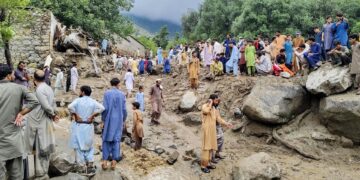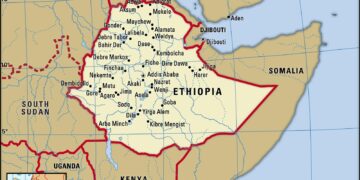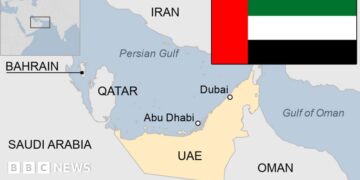Reimagining Southeast Asia’s Role Amid the Dissolution of ‘Chimerica’
Over the past decade, the tightly woven economic partnership between China and the United States—commonly dubbed “Chimerica”—has begun to unravel under mounting geopolitical strains. This seismic shift is not confined to these two global giants; its ripple effects are profoundly reshaping Southeast Asia’s economic and diplomatic landscape. This article examines how countries in this vibrant region are adapting to a world where reliance on Sino-American interdependence diminishes, highlighting emerging trends in trade, investment, and regional cooperation. As supply chains realign and alliances evolve, understanding these transformations is essential for governments and enterprises aiming to thrive amid uncertainty.
Transforming Economic Ties: Southeast Asia at a Crossroads
The once symbiotic relationship between China’s manufacturing prowess and America’s consumer market has long influenced Southeast Asia’s growth trajectory. However, escalating trade disputes coupled with strategic decoupling efforts have disrupted this balance. In response, many Southeast Asian nations are recalibrating their economic strategies by reducing overdependence on either superpower.
Recent data from UNCTAD reveals that Foreign Direct Investment (FDI) inflows into ASEAN countries surged by 12% in 2023 compared to previous years—a clear indicator of shifting investor confidence towards alternative hubs like Vietnam, Indonesia, and Malaysia. These nations are capitalizing on their competitive labor costs and improving infrastructure to attract companies diversifying supply chains away from China.
Moreover, regional frameworks such as the Regional Comprehensive Economic Partnership (RCEP), which includes 15 Asia-Pacific economies accounting for nearly 30% of global GDP as of 2024, underscore a growing preference for intra-regional commerce over external dependencies. This pivot fosters enhanced collaboration within ASEAN while positioning member states as pivotal players in new global value chains.
Key implications include:
- Surge in FDI: Businesses seeking risk mitigation increasingly invest directly within Southeast Asian markets.
- Strengthened Regional Integration: Enhanced cooperation through trade agreements bolsters collective bargaining power.
- Innovation Partnerships: Joint ventures focusing on technology transfer and digital infrastructure development gain momentum amid shifting alliances.
Navigating Geopolitical Shifts Through Multilateral Engagements
As Chimerica’s influence wanes amidst intensifying U.S.-China rivalry—marked by tariff escalations and strategic military posturing—Southeast Asian governments face complex diplomatic challenges. Balancing relations without alienating either power requires nuanced foreign policy maneuvers that safeguard sovereignty while maximizing economic benefits.
Countries like Indonesia have embarked on diversifying export destinations beyond traditional Chinese markets by strengthening ties with India—the world’s fastest-growing major economy—and Australia through bilateral free trade agreements signed recently in late 2023. Similarly, Vietnam continues deepening engagement within RCEP members while expanding partnerships with Japan’s advanced manufacturing sector.
ASEAN plays an instrumental role here; its platforms facilitate dialogue aimed at harmonizing member states’ responses toward external pressures without compromising unity or national interests.
| Southeast Asian Country | Main Strategic Focus |
|---|---|
| Indonesia | Diversification of export markets beyond China toward South Asia & Oceania |
| Vietnam | Deepening integration within RCEP & fostering tech collaborations with Japan & South Korea |
| Thailand | Pursuing stronger diplomatic ties with Western democracies including EU nations & U.S. |
Strategic Pathways Toward Resilience: Recommendations for Southeast Asian Nations
To successfully navigate this evolving geopolitical environment marked by uncertainty yet abundant opportunity, policymakers across Southeast Asia should consider adopting comprehensive strategies:
- Cementing Regional Unity: Reinforcing ASEAN-led initiatives can enhance collective resilience against external shocks affecting trade or security.
- Diversifying Global Partnerships: Expanding networks beyond traditional allies—including emerging economies such as Bangladesh or Chile—can reduce vulnerability stemming from concentrated dependencies.
- Pioneering Technological Innovation: Collaborative investments targeting green technologies (e.g., renewable energy projects) alongside digital transformation will position the region competitively for decades ahead.
Beyond economics alone lies an imperative cultural dimension: fostering a shared regional identity rooted in mutual respect can strengthen cohesion amid diversity.
Additional measures include:
- Evolving Education Systems: Promoting cross-border academic exchanges focused on STEM fields encourages knowledge sharing vital for innovation ecosystems.
- Civil Society Engagement:Create inclusive forums incorporating youth voices ensures grassroots support aligns with broader policy objectives enhancing social stability.
- A Unified Climate Agenda:
Conclusion: Charting a New Course Beyond Chimerica
As we witness the gradual dissolution of “Chimerica,” Southeast Asia stands at a pivotal juncture defined by both challenge and promise. The intricate web connecting Washington and Beijing no longer dictates regional trajectories unilaterally; instead, ASEAN members must exercise strategic foresight balancing diplomacy with pragmatic economic diversification.
By embracing deeper intra-regional collaboration alongside broadening international partnerships—with an emphasis on innovation-driven growth—the region can transform potential disruptions into engines of sustainable development.
The decisions made today will resonate far into future decades shaping not only prosperity but also geopolitical stability across one of the world’s most dynamic regions.















